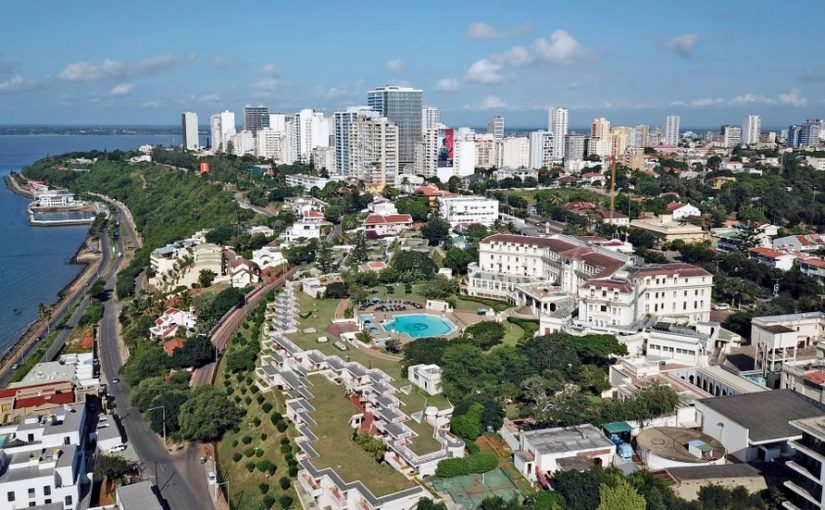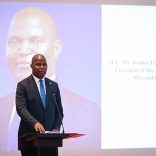Mozambican contractors call on World Bank to ease requirements - AIM report
Business conditions stagnant in October as new order growth slows – Standard Bank Mozambique PMI

File photo: Lusa
Key findings
- Sales increase at softest rate for nine months
- Modest expansions in output and employment
- Purchases fall for second month running
The latest Mozambique PMI® survey findings signalled an erosion of growth in the private sector economy at the start of the fourth quarter, as companies reported softening demand momentum and inventory curtailment. New business intakes grew at the weakest rate for nine months in October, while output and employment levels saw only modest upturns.
Input buying stayed on a downward slope, despite a pick-up in confidence among businesses towards future activity. Reduced purchases supported a renewed fall in overall cost burdens, contrasting with a further uptick in firms’ output charges.
The headline figure derived from the survey is the Purchasing Managers’ IndexTM (PMI®). Readings above 50.0 signal an improvement in business conditions on the previous month, while readings below 50.0 show a deterioration.
Following above-50.0 readings in each of the past eight months, the headline index slipped from 50.2 in September to 50.0 in October, signalling a stagnation of operating conditions and an end to the recent growth run.
While Mozambican firms continued to report an increase in new order volumes at the turn of the quarter, the uptick was fractional and the weakest in nine months. Whereas sales increased at some surveyed companies, others reported challenging conditions at clients and lower investment activity.
The mixed picture reflected differing trends at the sector level in October. While growth was registered in the manufacturing, construction and wholesale & retail industries, this was largely offset by reduced sales among agriculture and services firms.
Output growth in the Mozambican private sector was sustained in October, although as was the case in September, the rate of expansion was modest and weaker than those seen around mid-year. On the plus side, firms reported a quicker rise in employment numbers, albeit one that was largely centred on the manufacturing and service sectors.
On the negative side, purchases of inputs fell for the second month in a row during October, reflecting softer demand growth and a lack of capacity pressure. That said, the reduction was milder than the 20-month record set in September. Lower buying levels led to a depletion of input inventories for the first time since July, albeit one that was also only marginal.
At the same time, reduced demand for materials weighed on cost pressures, with the latest survey data indicating a negligible uptick in purchase prices. Wage inflation was at its softest level for more than two years, as firms reported only a fractional rise in salaries.
Selling charges were nevertheless increased for the sixth straight month, amid reports that uncertainty in commodity markets had encouraged companies to raise their prices. The pace of inflation was modest and only slightly quicker than in September.
Despite stagnant business conditions, firms indicated a greater degree of confidence regarding the future path of activity in October. Indeed, optimism recovered from recent lows to the strongest since June. Panellists were broadly hopeful that new work and investments in the coming months would support activity
Comment
Fáusio Mussá, Chief Economist – Mozambique at Standard Bank commented:
“The Standard Bank Mozambique PMI moderated to 50 in Oct, from 50.2 in Sep. There was a timid recovery in output and job creation, but with companies curtailing inventory, suggesting growth stalling at the beginning of the fourth quarter. Alongside subdued demand, there was a fresh contraction in input prices, a sign that inflationary pressures continue to recede. Having printed at the 50-benchmark level, the Oct PMI suggests stagnant business conditions.
“This month’s episodes of protests and violence, following the 11 Oct municipality elections, could further deteriorate the economic performance of the non-resources economy.
“Limited issuances of phytosanitary licences in northern Mozambique, following a campaign to clear reported irregularities in export processing has caused a temporary pause of agricultural exports. This combined with some food imports and subdued local demand helped moderate food price pressures.
“Inflation, last reported 4.6% y/y in Sep, a 32-m low, could be near a bottom, with risks increasing, considering geopolitical tensions and possible oil price pressures. This suggests monetary policy remaining tight, with policy rate likely kept on hold at 17.25% in the Nov MPC.
“Fiscal risks too have increased, considering Oct 24 general elections. We note the FY2024 budget proposal (12-m ending Dec 24) implying high net increase in domestic borrowings of MZN22.8bn or 1.5% of GDP, to help partially fund a steep increase in development expenditure.













Leave a Reply
Be the First to Comment!
You must be logged in to post a comment.
You must be logged in to post a comment.